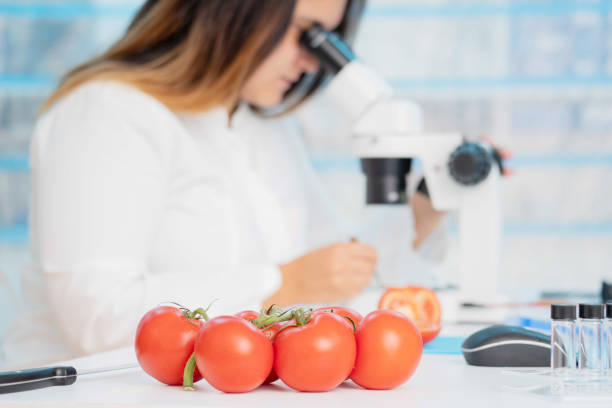
Target-AID and CRISPR-Cas9 Improve Lycopene Content in Tomatoes
January 6, 2021| |
Researchers from the University of Tsukuba designed a method using Target activation-induced cytidine deaminase (Target-AID) base-editing technology and CRISPR-Cas9 system to improve yield, shelf-life, nutrient content, and disease resistance in tomatoes.
Using the combined method, the researchers tweaked simultaneously the three genes associated with carotenoid accumulation in tomatoes. The three genes selected are SlDDT1, SlDET1, and SlCYC-B which are responsible for carotenoid accumulation, specifically lycopene. The mutation was shown in 10 out of the 12 tomato lines in all three target genes. Further examination revealed that the two lines with the dark green fruit and purple roots exhibit high levels of carotenoid in the gene-edited plants.
The results from the study showed a significant breakthrough from the early transgenic varieties using single nucleotide changes in individual tomato genes. This will allow tomato breeders to introduce multiple advantageous gene changes into competitive commercial varieties of tomatoes and skipping extensive crossbreed steps between generations.
For more details, read the news article from the University of Tsukuba website and the research article in Scientific Reports.
| |
You might also like:
Biotech Updates is a weekly newsletter of ISAAA, a not-for-profit organization. It is distributed for free to over 22,000 subscribers worldwide to inform them about the key developments in biosciences, especially in biotechnology. Your support will help us in our mission to feed the world with knowledge. You can help by donating as little as $10.
-
See more articles:
-
News from Around the World
- ISAAA Presents 2019 Biotech Adoption Findings to Stakeholders in Europe and South America
- UBIC Builds NARO Anti-tick Vaccine Team's Capacity for Biosafety Compliance
- CIMMYT Announces Fall Armyworm Tolerant Maize Hybrids for Africa
- Researchers Find Flag Leaves Top Off Rice Photosynthetic Performance
- USDA APHIS Deregulates GE Corn with Enhanced Yield and Herbicide Tolerance Traits
- Price, Nutrition Among Top Factors that Affect Canadian Consumers' Choice to Buy GM Foods
- Scientists Boost Vegetable Oil Production in Plant Leaves
- CSIRO "Gene Sandwich" to Boost Wheat Resistance to Rust
-
Research Highlights
- Bt Cotton Key in Eradicating Destructive Pest from the US and Mexico
-
Plant
- Target-AID and CRISPR-Cas9 Improve Lycopene Content in Tomatoes
- What are TALENs?
-
Health
- Fast-spreading SARS-CoV-2 Variant in the U.K. Raises More Questions
-
Read the latest: - Biotech Updates (February 11, 2026)
- Gene Editing Supplement (January 28, 2026)
- Gene Drive Supplement (February 22, 2023)
-
Subscribe to BU: - Share
- Tweet

